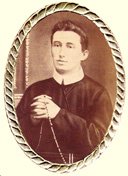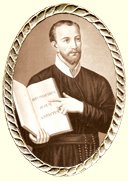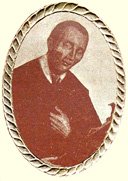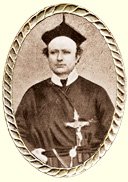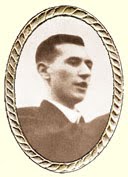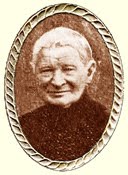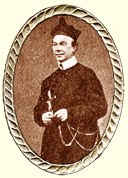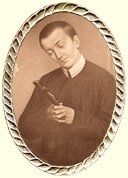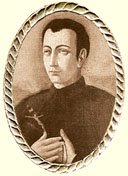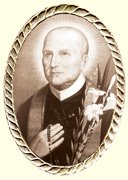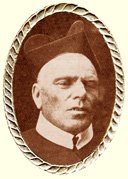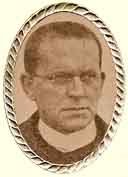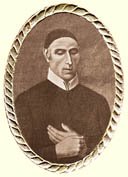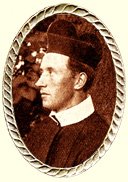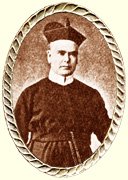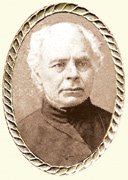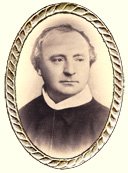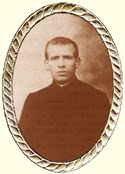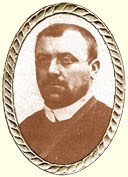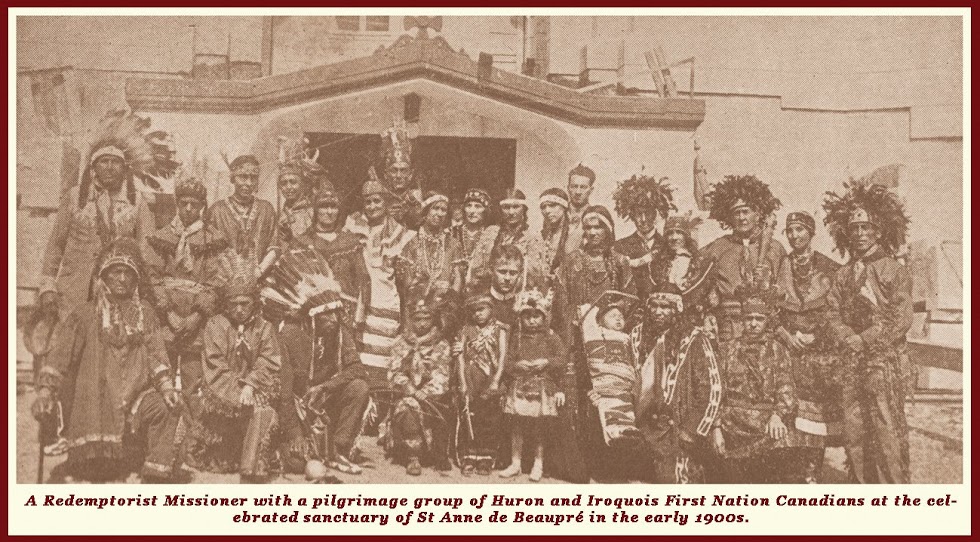Br Felician Dubucquoi, C.SS.R. (1816-1897)
 For nearly half a century this venerable and modest Brother was familiar to all who frequented St Alphonsus Church in Limerick, Ireland. Many a stranger too, who saw Brother Felician but once, either passing through the church, or genuflecting before the Blessed Sacrament, has carried away an ineffaceable image of him impressed upon his mind.
For nearly half a century this venerable and modest Brother was familiar to all who frequented St Alphonsus Church in Limerick, Ireland. Many a stranger too, who saw Brother Felician but once, either passing through the church, or genuflecting before the Blessed Sacrament, has carried away an ineffaceable image of him impressed upon his mind.
Felician Dubucquoi was born at Dottinges, Belgium , on the 1st of September, 1816. He was professed when twenty five, on the eve of St Alphonsus’ Feast, 1841. In 1843 he accompanied Fr De Buggenoms to England. They left Ostend on the 9th of June, the Feast of our Lady of Grace, and arrived in Falmouth, their destination, on the 17th. There, until 1848, Brother Felician turned his hand to every kind of office as a coadjutor brother. In that year Falmouth was abandoned to enable the Fathers to form a regular community at Clapham. From Clapham he went to Bishop Eton, and thence to Limerick. This was in November, 1855. In his humility this excellent brother used to say, that if he did not sanctify himself by work, he would never sanctify himself by any other means.
There was, one might say, nothing that his hands could not do. If the walls of the temporary church in Limerick were still standing and could speak, what would they not say of Brother Felician’s skill and decoration, and in all that adds lustre to the Feasts of the Church? But it was especially in the new church that he showed his taste and talent. Carving, painting, gilding - all came easy to him. And who will ever forget Brother Felician’s Christmas Crib? His whole soul went out to the decorative work, when young and robust no labour was too hard or rough for him. There are fathers of families in Limerick and elsewhere, there are priests and religious, who all remember with joy and gratitude the days when they were Brother Felician’s servers. They loved him and respected him. They felt how great was his joy when the Rector gave them a feast; but they knew how exacting he was as to their conduct before, during, and after the services in the church. Good Acolytes proved the excellence of the Sacristan.
There are fathers of families in Limerick and elsewhere, there are priests and religious, who all remember with joy and gratitude the days when they were Brother Felician’s servers. They loved him and respected him. They felt how great was his joy when the Rector gave them a feast; but they knew how exacting he was as to their conduct before, during, and after the services in the church. Good Acolytes proved the excellence of the Sacristan.
In 1891, he had the happiness of celebrating his golden jubilee of Profession. He prepared himself by recollection and prayer for the renewal of his vows. When the time came for doing so, he presented himself before Father Rector at the altar in the private oratory with the formula in his hand. He began to read it, but the tears coursed abundantly down his cheeks, and his emotions at the thought of God’s goodness to him, and his own unworthiness, was so great that he could not continue. The Father Rector took the formula to suggest the words to the happy Jubilarian, but seeing the old man so affected, he too well nigh broke down.
Brother Felician continued in the office of Sacristan, which he filled so well, up to the end of his life. His part in the processions would require a chapter to itself. As he grew old, other hands had to do the heavy work, but he was on the spot to direct the work, and his hands too, were always busy.
He saw the crib completed in 1896, as he had seen it in former years. He prepared the figures as usual, and had the consolation, as he had had on so many former Christmas Days, of seeing thousands come to do honour to Jesus Mary, and Joseph. When January the 5th, the eve of the “coming of the kings,” had arrived; on this day, almost suddenly, God called Brother Felician to himself. On the 7th, the people of Limerick showed their reverent respect for the remains of Brother Felician. His body was borne to the crypt and placed under his own Crib. He was in his 81st year. †
When January the 5th, the eve of the “coming of the kings,” had arrived; on this day, almost suddenly, God called Brother Felician to himself. On the 7th, the people of Limerick showed their reverent respect for the remains of Brother Felician. His body was borne to the crypt and placed under his own Crib. He was in his 81st year. †




















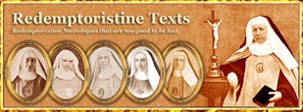
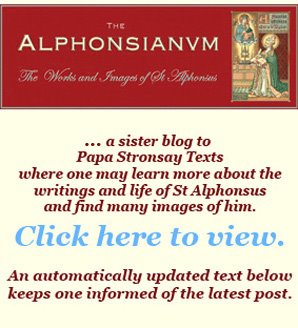.jpg)









